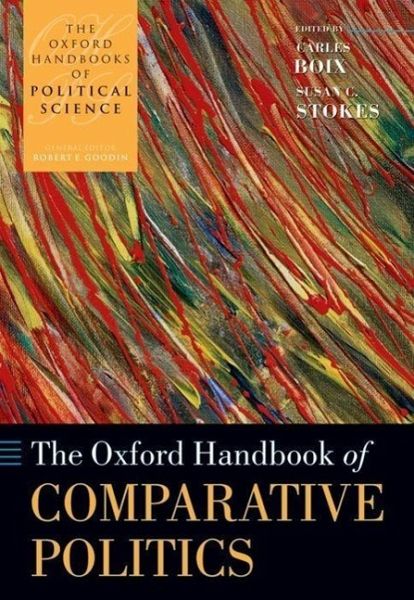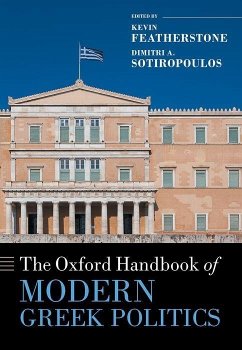
The Oxford Handbook of Comparative Politics
Versandkostenfrei!
Versandfertig in 2-4 Wochen
56,99 €
inkl. MwSt.

PAYBACK Punkte
28 °P sammeln!
The Oxford Handbook of Comparative Politics offers a critical survey of the field of empirical political science through the collection of a set of chapters written by 48 top scholars in the discipline of comparative politics. Part I includes chapters surveying the key research methodologies employed in comparative politics (the comparative method; the use of history; the practice and status of case-study research; the contributions of field research) andassessing the possibility of constructing a science of comparative politics. Parts II to IV examine the foundations of political order: the o...
The Oxford Handbook of Comparative Politics offers a critical survey of the field of empirical political science through the collection of a set of chapters written by 48 top scholars in the discipline of comparative politics. Part I includes chapters surveying the key research methodologies employed in comparative politics (the comparative method; the use of history; the practice and status of case-study research; the contributions of field research) and
assessing the possibility of constructing a science of comparative politics. Parts II to IV examine the foundations of political order: the origins of states and the extent to which they relate to war and to economic development; the sources of compliance or political obligation among citizens; democratic
transitions, the role of civic culture; authoritarianism; revolutions; civil wars and contentious politics. Parts V and VI explore the mobilization, representation and coordination of political demands. Part V considers why parties emerge, the forms they take and the ways in which voters choose parties. It then includes chapters on collective action, social movements and political participation. Part VI opens up with essays on the mechanisms through which political demands are aggregated and
coordinated. This sets the agenda to the systematic exploration of the workings and effects of particular institutions: electoral systems, federalism, legislative-executive relationships, the judiciary and bureaucracy. Finally, Part VII is organized around the burgeoning literature on macropolitical
economy of the last two decades.
assessing the possibility of constructing a science of comparative politics. Parts II to IV examine the foundations of political order: the origins of states and the extent to which they relate to war and to economic development; the sources of compliance or political obligation among citizens; democratic
transitions, the role of civic culture; authoritarianism; revolutions; civil wars and contentious politics. Parts V and VI explore the mobilization, representation and coordination of political demands. Part V considers why parties emerge, the forms they take and the ways in which voters choose parties. It then includes chapters on collective action, social movements and political participation. Part VI opens up with essays on the mechanisms through which political demands are aggregated and
coordinated. This sets the agenda to the systematic exploration of the workings and effects of particular institutions: electoral systems, federalism, legislative-executive relationships, the judiciary and bureaucracy. Finally, Part VII is organized around the burgeoning literature on macropolitical
economy of the last two decades.












